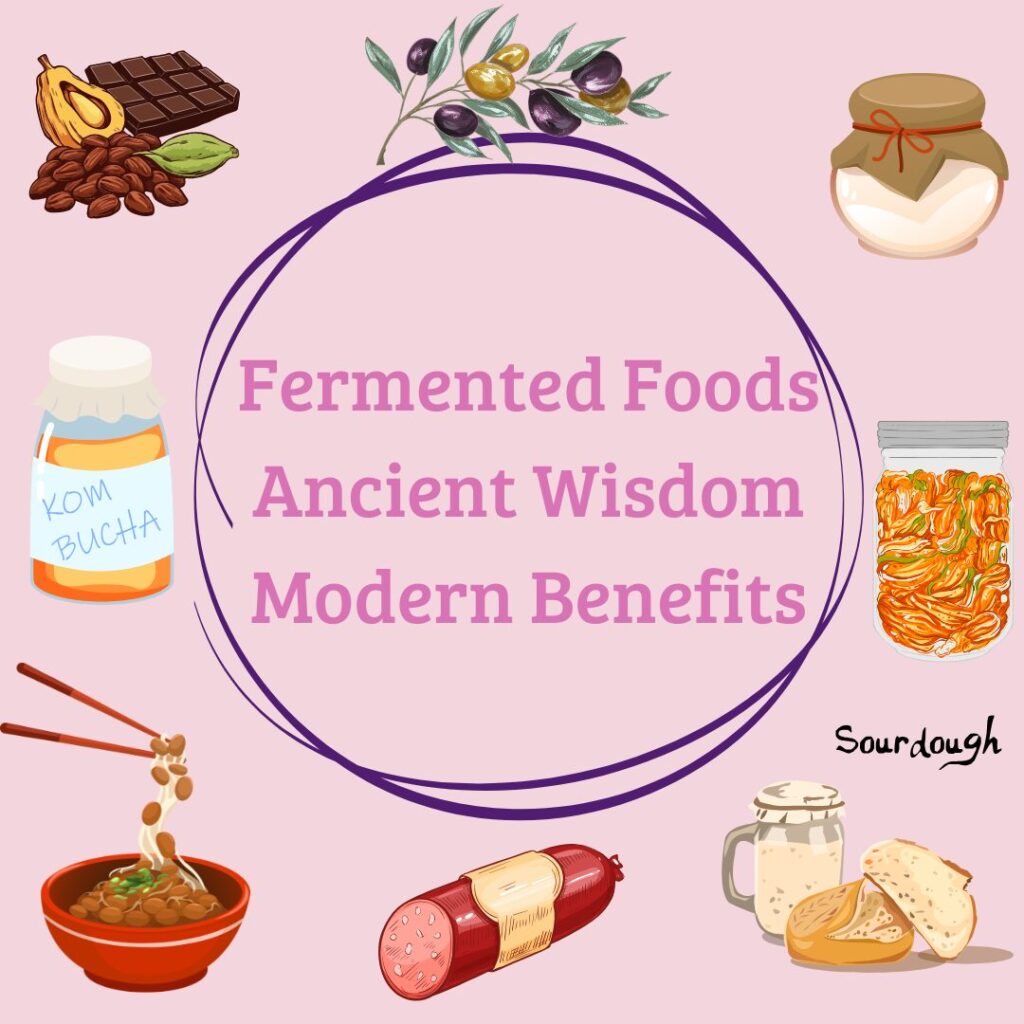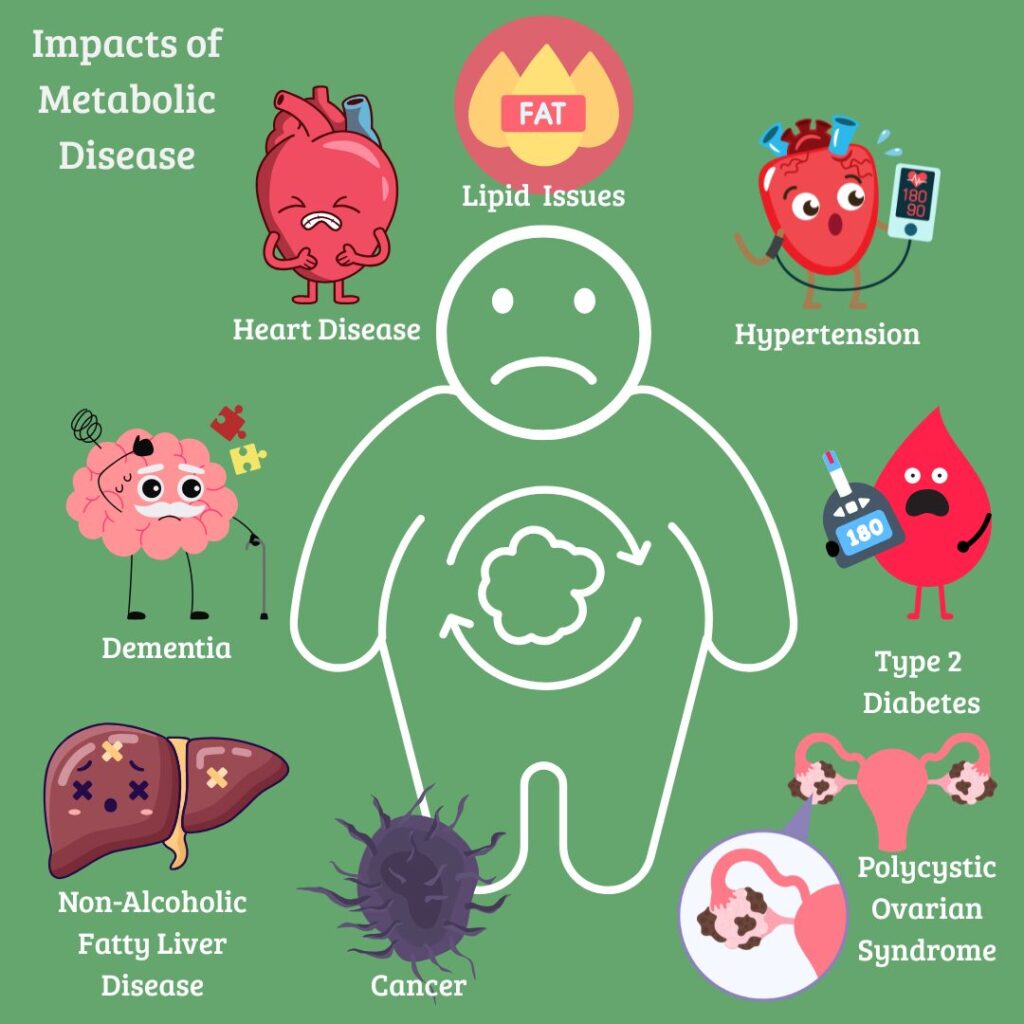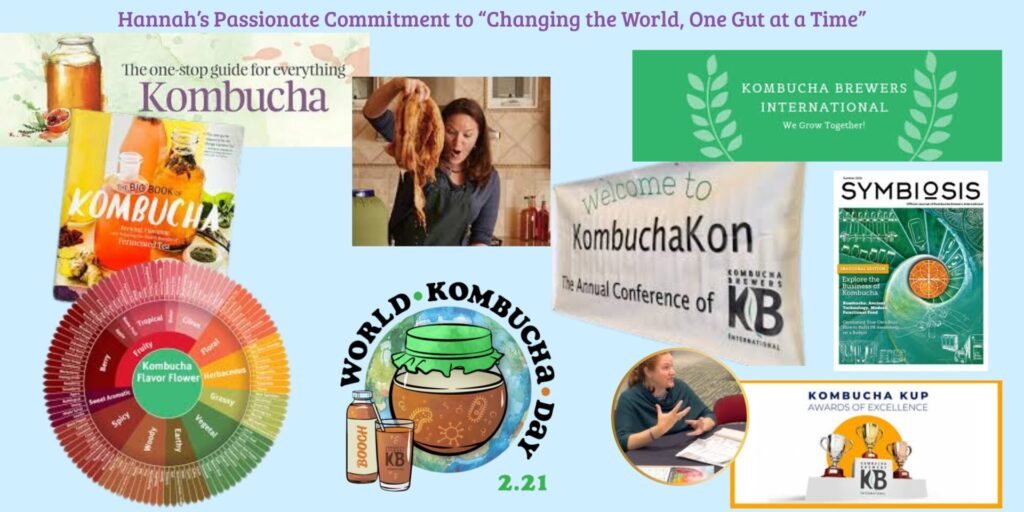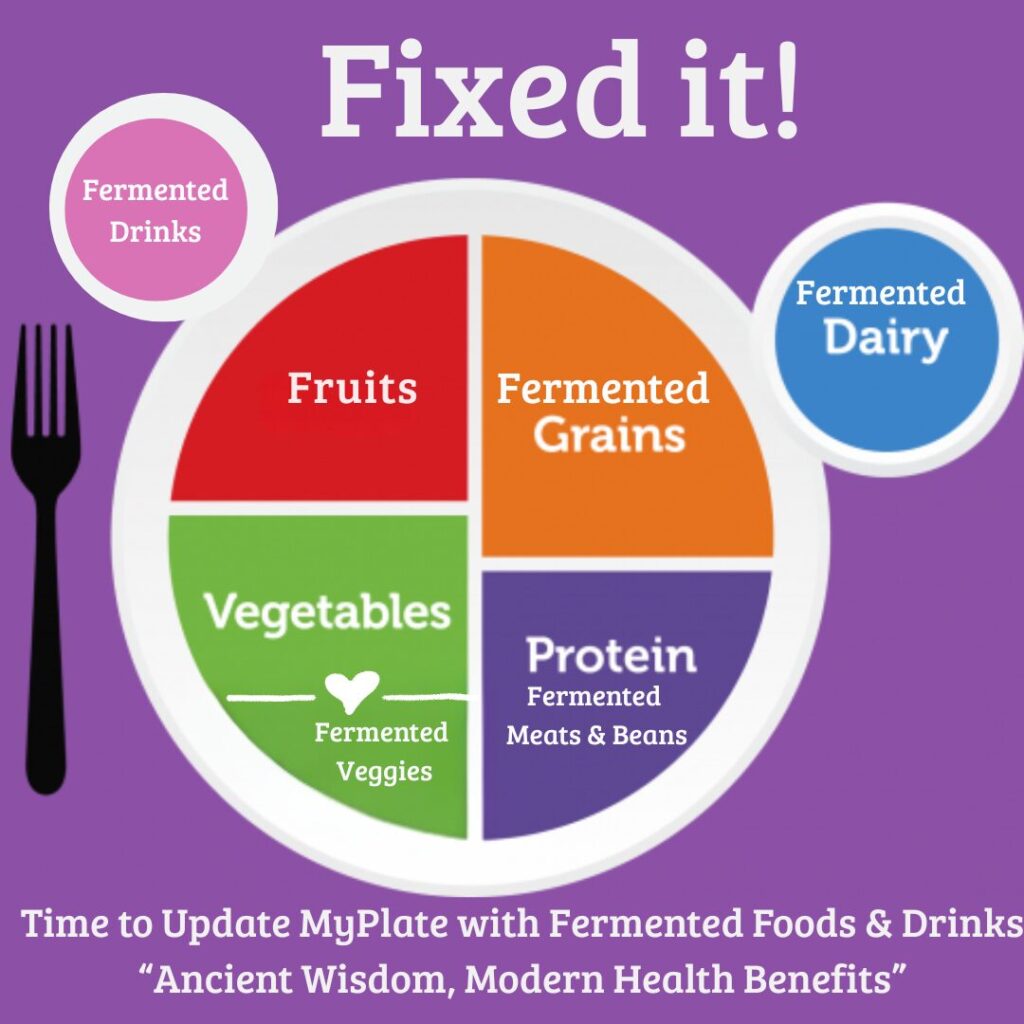
Why We Need a Fermentation "Czar"
While I’m half-joking about the term “czar”, a playful nod to the unofficial title often given to government officials overseeing specific issues, I am absolutely serious about the need for an advisor or team of experts to help guide the FDA in updating our nutritional recommendations to include fermented foods.
Fermented foods have been a cornerstone of human nutrition for thousands of years. Long before written history, we partnered with our bacterial allies to preserve food, detoxify, enhance nutritional value, and boost immunity and mood. Yet, despite this ancient history, these vital foods have been overlooked in the official U.S. dietary guidelines.
America’s food culture, originally influenced by diverse traditions, became dominated by Big Ag interests pushing factory-farming methods and ultra-processed foods. These mass-produced foods, stripped of their nutritional vitality, are cheaper to produce and heavily subsidized. Fermented foods, once a staple in many immigrant diets, were slowly phased out of the mainstream “melting pot.”
However, thanks to the Fermentation Revival led by Sandor Katz and his groundbreaking ‘zine Wild Fermentation in the late 1990s, these foods are finally getting the recognition they deserve. It’s time to bring them back into our daily nutrition recommendations, where they truly belong.
Germ Warfare Harms All Bacteriosapiens
We’ve all witnessed the rise of “superbugs” and the failed war on germs, which gave way to the hygiene hypothesis. This theory acknowledges that excessive cleanliness and overuse of hand sanitizers can actually lead to more negative health outcomes. At the same time, research from the Human Genome Project and the Human Microbiome Project has started to connect the dots.
For too long, we waged a war against microbes and in essence our own selves, but it’s become clear that there are far more beneficial organisms living inside and on our bodies, and on every surface of the planet, that are vital for the health and well-being of all living creatures. In fact, we like to call humans bacteriosapiens, a term we invented that reflects our intrinsic relationship and evolution in tandem with beneficial bacteria that are integral to our survival and health.
Moreover, we know that when people feel good, they do good. Fermentation is also about community – creating healthy cultures that radiate into the world!

The Epidemic of Metabolic Disease
In America, we’re facing an epidemic of crisis level proportions of metabolic disease that’s now spreading globally, as other countries adopt our nutritionally depleted, chemically addictive food habits. The good news is that this crisis is easily reversible! No pharmaceutical interventions are required; a few simple lifestyle changes can make a profound difference.
But government is often slow to act. It is bogged down by powerful lobbying interests that profit from human sickness. From producing toxic foods to peddling medications with harmful side effects, our system has been rigged to benefit large monied interests.
Integrating fermented foods into a reimagined “food plate” would be a giant leap forward in returning humanity to a state of health and harmony.

Why is Hannah a Good Fit for this role?
A lifelong educator and fermented foods advocate, Hannah Ruhamah, lovingly known as “The Kombucha Mamma,” has dedicated her life to her mission of “Changing the World, One Gut at a Time.” While she met Kombucha by kismet, the symbiotic nature of the culture and its immediate health benefits sparked a now two decades long journey of advocacy.
Not only has she and her husband and business partner, Alex LaGory, been educating millions of consumers about the benefits of Kombucha via their popular educational website – KombuchaKamp.com – they have also been bacteria farmers, growers of commercial Kombucha cultures and ultimately the co-founders of Kombucha Brewers International, the trade association representing commercial produced Kombucha across the globe.
In her role as President, Hannah and KBI members developed the Kombucha Code of Practice which enshrined Traditionally Fermented Kombucha Tea while also acknowledging that commercial production can require different types of processes in order to reach a larger audience.
She has actively lobbied Congress and the Senate since 2016 for the passage of the commonsense tax code update called the KOMBUCHA Act which has received bipartisan support though has not found the appropriate vehicle to be enacted – which could also be due in part to Kombucha being a young industry with not a lot of resources to fund massive lobbying campaigns or to line the pockets of Senators and Congresspeople – unlike Big Soda.
Hannah’s dedication to Kombucha and her mission have led her to teach hundreds of workshops across the globe speaking at conferences in multiple countries. Her and Alex’s best selling book, The Big Book of Kombucha, has sold over 250,000 copies and is translated into 6 languages. They also created the Kombucha Research Database to collate all known research in a single location.
Hannah’s unique passion for education, transparent labeling, research and advocacy make her the perfect candidate to lead the charge for commonsense nutritional guidelines that include fermented foods & drinks. Her superpower is assembling teams of likeminded, passionate people who share the same vision to elevate all humanity.

Platform & Policies
- Add fermented foods to the Dietary Guidelines for Americans and MyPlate Plan.
- Establish science & tradition based common sense regulations for fermentation businesses including cottage food businesses.
- Update the definition of “Added Sugars” in the case of fermented foods. The current label regulations penalize traditionally fermented beverages that use sugar as a source of food for the microbes that confuses consumers and drives them to lower quality options that use non-nutritive sweeteners.
- Update outdated tax code to create a “Healthy Low Alcohol” beverage category for traditionally fermented, non-intoxicating beverages such as Kombucha, Water Kefir, Ginger Bug, Beet Kvass and so forth.
- Create subsidies to support fermentation businesses including biannual (every 2 years) DNA sequencing for additional transparency.
- Fund research to fully understand the anecdotal and historic uses of traditional fermented foods.
- Identify and develop novel applications for fermentation cultures such as using Kombucha SCOBYs for wound dressing; to remove toxins from groundwater; to create sustainable wood, paper and other biodegradable materials and many others.
- Establish fermentaries in hospitals – the ferments can be fed to the patients, the byproducts can be used as disinfectants, wound dressings and many other applications to replace harmful chemicals that create super bugs.
